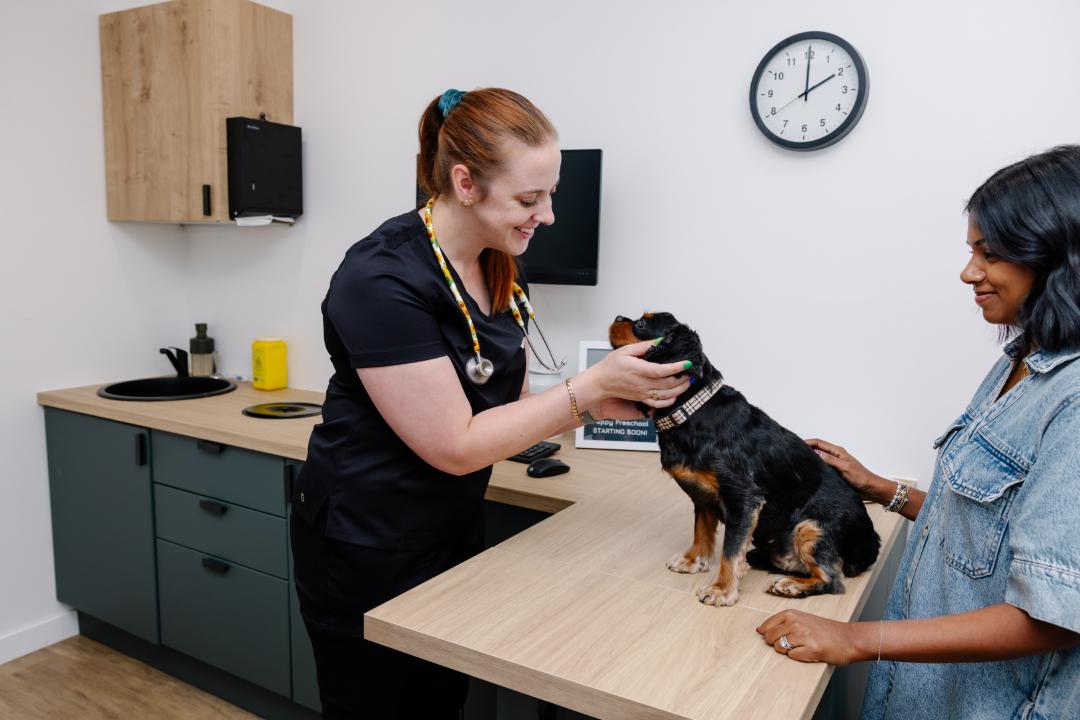If your dog’s behaviour has you scratching your head, you might be wondering whether to call a dog trainer or a veterinary behaviourist. Both can help, but they’re experts in different areas, so let’s break it down in a way that makes sense!

Dog Trainer
Dog trainers are like teachers or personal trainers for your pup. They’re great at helping with obedience training—think cues like “sit,” “stay,” or “come.” Trainers can also help tackle everyday challenges like leash pulling, jumping up on people, or house training. Look for a trainer that uses positive reinforcement training methods to guide your dog toward good behaviour. If your furry friend needs a little polishing on their manners or wants to learn new tricks, a dog trainer is your go-to.
Veterinary Behaviourist
A veterinary behaviourist is like a detective and therapist rolled into one, but for your pet. They’re qualified vets who’ve had extra training in animal behaviour. Their expertise is perfect for solving more serious issues like severe anxiety, aggression, or compulsive behaviours. Pain and illness can be big factors in behaviour, so if a medical condition is behind your dog’s behaviour, they can diagnose and treat it. They’ll also create personalised behaviour plans and may prescribe medication if needed.
Which One Should You Choose?
If your dog needs help with basic skills or everyday manners, a dog trainer is the perfect fit. Look for a trainer that will use positive methods and not force your dog into situations that make them uncomfortable or cause discomfort or pain. Unfortunately in Australia, dog training is an unregulated industry, so it is important to do some research into the trainer, their experience, and their methods before engaging them.
If your dog is dealing with serious behavioural challenges, sudden or drastic changes in behaviour, escalating / dangerous behaviours that could cause harm to them or to others, or you think something medical might be involved then it’s time to see a veterinary behaviourist.
Sometimes, both professionals can team up to give your pup the best care possible. Knowing the difference between them makes it easier to get the right help and ensure your dog is happy and healthy!

